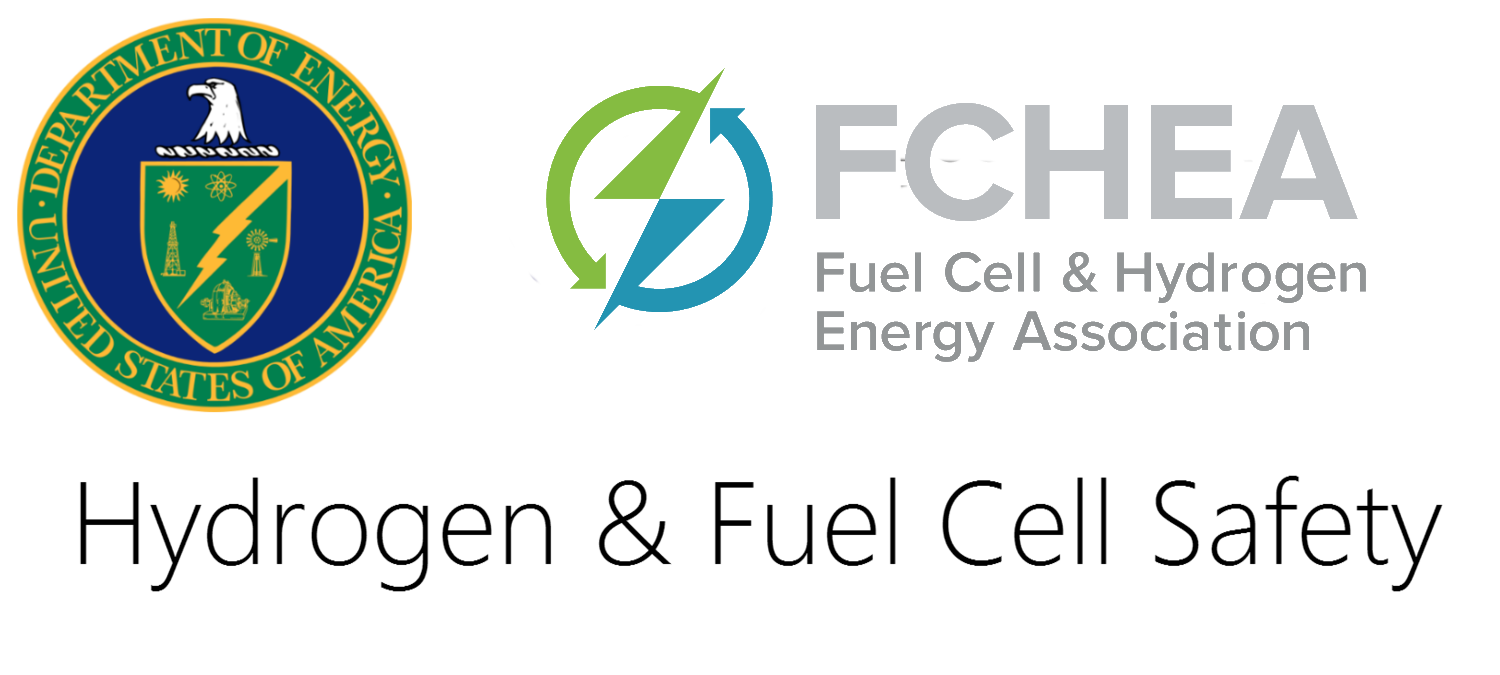March 2008 Safety Report
CGA Advances Hydrogen Standards Development
Marc J. Meteyer, President and CEO, Compressed Gas Association, Inc.
GTW Insight: Global Standards Policy and Strategic Developments
Courtesy GTW Associates
Hydrogen Combustion in the Context of Fire and Explosion Safety (HYFIRE)
Professor Jennifer Wen, Director of Centre for Fire and Explosion Studies, Faculty of Engineering, Kingston University
ISO/TC 197 Update
Karen Hall, National Hydrogen Association
National Hydrogen and Fuel Cells Codes & Standards Coordinating Committee Teleconference - February 2008 Minutes
Russell Hewett, NREL
CGA Advances Hydrogen Standards Development
Marc J. Meteyer, President and CEO, Compressed Gas Association, Inc.
CryoGas International has given its permission for the NHA to publish the following article in the Hydrogen and Fuel Cell Safety Report. The article was first published by CryoGas in their February 2008 edition.
- CGA Advances Hydrogen Standards Development (25Kb PDF)
In addition, the NHA would like to remind you that CGA is holding a Hydrogen Seminar at the NHA Annual Conference on Thursday April 3, 2008 at the Sheraton Grand Sacramento Hotel. A separate registration fee is required to attend this workshop. To see the program and access registration, please visithttp://www.hydrogenconference.org/content.asp?cga.
Hydrogen Combustion in the Context of Fire and Explosion Safety (HYFIRE)
Professor Jennifer Wen, Director of Centre for Fire and Explosion Studies, Faculty of Engineering, Kingston University
In September 2006, Kingston University, in partnership with BP and the UK Health and Safety Laboratory (HSL), launched a 4-year fellowship project to provide early-stage training in the field of hydrogen safety. The project is funded by the European Commission’s Marie Curie Research and Training Programme with €1M budget. It aims to offer a unique opportunity for researchers in the early stages of their careers to acquire specific scientific skills and competencies in the diffusion, ignition and combustion of hydrogen within the context of fire and explosion safety. The principal output from the project will be the establishment for further development of a pool of EU trained researchers specialising in hydrogen fire and explosion safety, a relatively new field where such young talent is at present lacking.
The project is focused on cutting edge research in the underpinning areas of hydrogen safety. Systematic training is provided through research and dedicated training in the following multidisciplinary and interconnected areas:
- Hydrogen jet flames from very high-pressure release;
- Flame impinging on surfaces and the resulting effect on hydrogen transport cylinders and storage vessels;
- Liquid hydrogen spill and combustible cloud dynamics; and
- Hydrogen combustion in semi-confined and vented geometries and the conditions for deflagration-to-detonation (DDT) processes
The research is conducted using CFD based numerical modelling approaches while the abundant published experimental data from small- and large-scale tests will be used for model validation. Collaboration with BP and HSL also opens up further proprietary experimental data for this purpose.
Further details can be found through the following link to the Centre for Fire and Explosion Studies at Kingston University:engineering.kingston.ac.uk/research/CFES/index.php?CentreID=15
ISO/TC 197 Update
Karen Hall, National Hydrogen Association
Plenary
The next Plenary meeting will be held on Friday June 13 In conjunction with the World Hydrogen Energy Conference 2008 (WHEC) in Brisbane, Australia. Please note that international delegates planning to attend will need an electronic travel authority visa. Details can be found athttp://www.immi.gov.au/skilled/business/
business-visit-visa-options.htm
Meeting rooms are available on 10-12 June 2008 for active Working Groups. These are still under consultation and will be announced when they have been confirmed.
Gaseous Hydrogen - Fuelling Stations
A final report of voting on ISO/DTS 20012, Gaseous hydrogen—Fuelling stations was distributed to national TAG members. The vote passed, with Japan, Sweden, the United Kingdom, and the United States voting against. WG 11 was requested to address comments on this vote. Comments for which consensus was deemed easy to reach are included in the final draft. Other comments will be addressed as WG 11 continues its work towards development of an international standard. A draft was circulated that incorporates the agreed comments, and U.S. TAG members are asked to provide input on errors or omissions no later than March 20 to the US TAG Administrator, Debbie Angerman.
Road Vehicles - Compressed Gaseous Hydrogen (CGH2) And Hydrogen/Methane Blends Fuel System Components
Member countries are asked to vote on a New Work Item Proposal (N391) on Road vehicles—Compressed gaseous hydrogen (CGH2) and hydrogen/methane blends fuel system components. Final vote is due by March 31. Participants are requested. This NWIP is to be approved by both TC 22 and TC 197, and work is envisioned in a joint working group structure.
Hydrides
The ISO/TC 197 Secretariat has announced that the ISO/DIS 16111 Transportable gas storage devices — Hydrogen absorbed in reversible metal hydrides has been approved. The comments received are to be returned to ISO/TC 197 WG 10 for its consideration. ISO/TC 197 WG 10 will be working on a tight schedule to make sure that ISO 16111 will be published in time for the December 2008 meeting of the ECOSOC Committee of experts on the Transport of Dangerous Goods (SCETDG).
Hydrogen Fuel Systems for Land Vehicles
As agreed at the last plenary meeting of ISO/TC 197 in Montecatini Terme, an ad hoc group on vehicular hydrogen fuel systems is being formed under the leadership of the ISO/TC 197 Chair. This ad hoc group will be responsible for preparing a strategy paper on how to move forward with the development of an international standard on hydrogen fuel systems for land vehicles.
Experts interested in joining this ad hoc group are encouraged to contact their national TAG administrator as soon as possible. OEMs, fuel tank manufacturers, components manufacturers and regulators are especially encouraged to participate.
At the same time, ISO/TC 197 is encouraging the P-member countries to share any information (test report, analysis) that would facilitate the work of this ad hoc group.
Hydrogen Fuel Quality
ISO TS 14687-2:2008 Hydrogen fuel—Product specification—Part 2: Proton exchange membrane (PEM) fuel cell applications for road vehicles is now published and available through CGA atwww.cganet.com.
